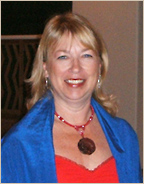December 9, 2008
A couple of stories came up, and observations, that I was not able to fit in along the way so I thought I would share them now.
At the WBF training, a lawyer who was giving information on the legalities of starting up a business, opened his talks with a story about his sister. He and his sister were in the same class in school. They were both good students but his sister always was a bit ahead of him. About the age of 12, both of them had to start doing a lot more work at home. His sister had to help with the other children, the dishes, the cleaning and the cooking. He had to help herd the cows.
When you herd the cows, you can take a book with you and read, and do some homework. You can not have a book in your hand and bathe a child, or cook the rice, or do the dishes. Consequently, when they completed school, he was at the A level and she was at C-. He said this was entirely because of the difference—and intensity—of their work at home. It was a very telling illustration of how girls are so often side-tracked by the “girl” duties at home.
Two years ago when I came to Kenya my friend Eva gave me a Kenyan name—Njoki, which means “one who comes back.” This has been a great source of pride and amusement for both the Kenyans and myself. I found the same reactions—pride and amusement—when I was in Kenya in August of 2007, and when I met officials at the Kenyan Embassy in Washington D.C. in May 2008.
However, this trip I found a somewhat different reaction. At least five times during the week after I introduced myself as Njoki, I had the person ask me, “Are you a Kikuyu?”
The post-election violence the end of last year and early this year was predominantly between the Kikuyus and Luos. Both were represented by a leader in the close election. Tensions were high and erupted into unspeakable acts of violence for 1-2 months in some areas.
It’s pretty obvious that I am not a Kikuyu. Yet some people were seemed so taken aback by my name. When I would laugh and say, “No,” they would ask if a Kikuyu gave me the name. I would just respond, “A friend that lives here gave me the name because she knows I love Kenya and I always come back!”
I questioned the last person who said it to me, a young gentleman who works for KLM at the airport. I said to him, “I was never asked this on my trips before the election, but now since the violence, I am have been asked at least five times on this trip. Isn’t that sad?” And he replied—talking about himself as much as the others, “This is why we as Kenyans do not move forward. We are stuck in the past instead of looking at the future. Yes, I should not have asked that.” He called me Njoki for the rest of our transaction—and did not charge me for my overweight luggage!
The first time it came up was from one of the girls we were training. When I said my Kenyan name is Njoki, she took a step back and asked if I was Kikuyu. When I said no, she asked if a Kikuyu person gave me that name. Then she went to the other side of the room and sat alone. She was clearly troubled. I alerted the other trainers about our interaction—her concern that I had a Kikuyu name.
The Kenyan adults in the training were surprised. Were the young people, who grew up side by side with people from different tribes, different villages, different backgrounds, starting to soak in some of the prejudices of the adults?
This young woman became one of the most engaged trainees and definitely one of the best communicators. The last day, as our three vans converged at a meeting point to go to the corporate launch, she jumped out of her van and came to sit in the van by me. I decided to light-heartedly tease her—that I knew she did not like me at first because of my Kikuyu name. She tried to shrug it off, but I wouldn’t let her. I said to her, “I knew it bothered you and I am so proud of you now for overcoming it.” She grinned and nodded her head.
Raychelle, who handled the logistics for our training, had seen that interaction during the informal introductions. She said she was pleasantly surprised that I picked up on the girl’s comment and body language so quickly. “I knew from that point that the training would go well and the girls were in good hands,” she said.
Yes, Njoki is appropriate. I was going back to Kenya in March for the KAWBO conference, which has now been moved back to May. I had already lined some other things up for March, so I’m thinking—maybe I need to go in both March and May….
Wednesday, December 10, 2008
Subscribe to:
Post Comments (Atom)


No comments:
Post a Comment